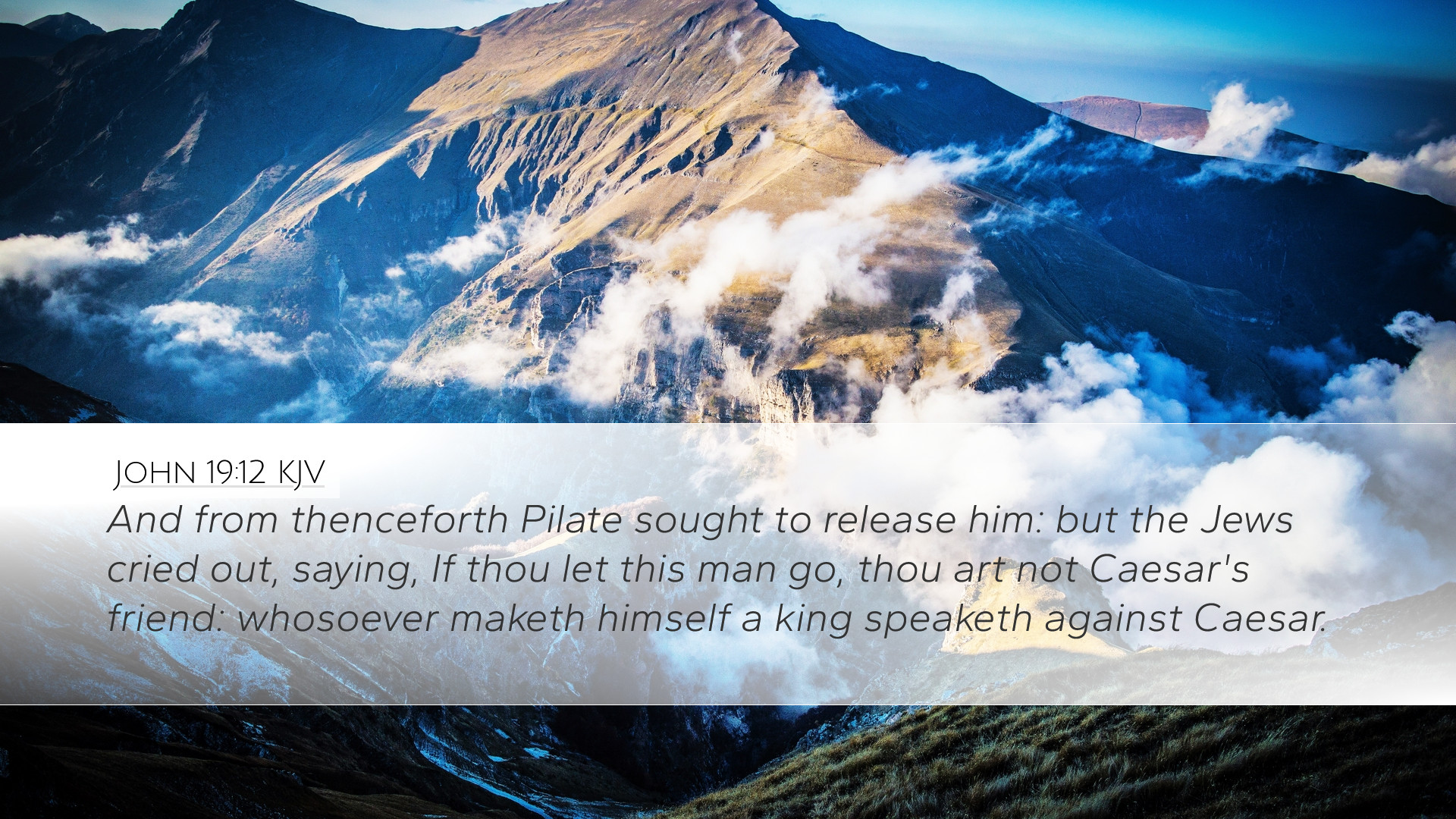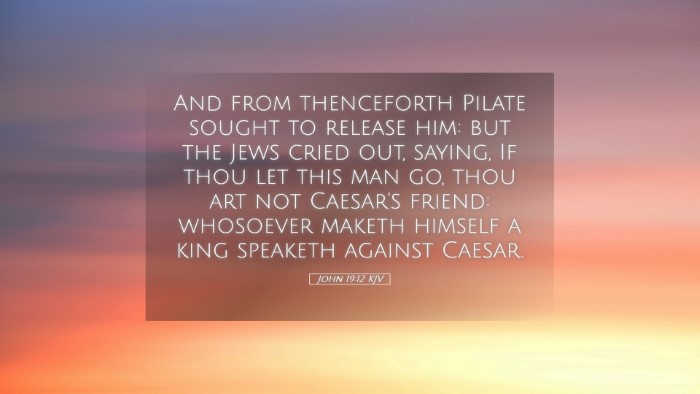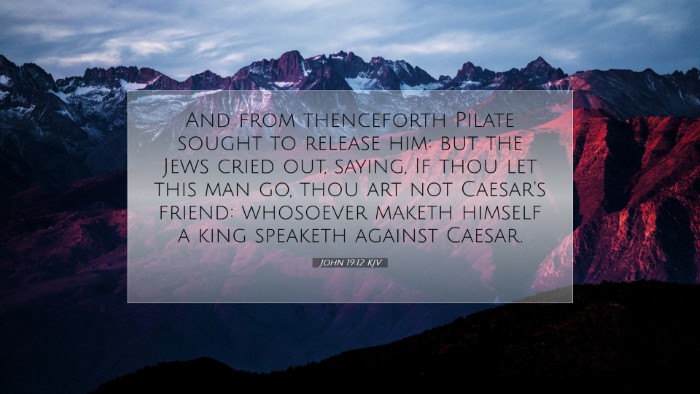Bible Commentary on John 19:12
Verse: John 19:12 - "And from thenceforth Pilate sought to release him: but the Jews cried out, saying, If thou let this man go, thou art not Caesar's friend: whosoever maketh himself a king speaketh against Caesar."
Introduction
This verse captures a significant moment in the trial of Jesus before Pontius Pilate, highlighting the political tensions and the interplay of power between Roman authority and Jewish leadership. The complexities of this moment reveal profound theological truths and provide insight into human nature and the dynamics of power. The following commentary synthesizes insights from esteemed public domain scholars, including Matthew Henry, Albert Barnes, and Adam Clarke.
Contextual Background
The setting of John 19:12 is the final moments of the trial where Pilate, the Roman governor, is caught between the desires of the Jewish leaders and the integrity of his own evaluation of Jesus. Understanding the political landscape of Judea during this time is key, as the Jews were under Roman rule and any claim to kingship by Jesus could threaten that rule.
Analysis of Key Themes
-
Desire for Release
As noted by Matthew Henry, Pilate's internal struggle becomes evident. He is portrayed as wanting to release Jesus, recognizing the injustice of the charges against Him. This illustrates the often conflicting desires of rulers who wish to maintain justice yet submit to the pressures of public opinion.
-
Political Pressure
Albert Barnes emphasizes the manipulative tactics used by the Jewish leaders. They invoke fear in Pilate by suggesting that releasing Jesus would indicate disloyalty to Caesar. This appeal to Pilate's political vulnerability reveals a classic strategy of coercion where fear supersedes justice.
-
The Accusation of Kingship
Adam Clarke highlights the gravity of the charge against Jesus, "whosoever maketh himself a king". This accusation not only challenges Roman authority but also reflects the Jewish leaders’ recognition of Jesus’ influence. It encapsulates the clash between divine Kingship and earthly power, setting the stage for the unfolding events of the crucifixion.
Theological Implications
This verse opens a discussion on theological realms regarding authority and rebellion. Jesus' claim to kingship is not in the traditional sense but is rooted in a kingdom not of this world. The tension between His divine authority and earthly powers serves as a fundamental theme in Christian theology, where the ultimate question of allegiance arises: do we serve God or man?
Character Studies
-
Pontius Pilate
Pilate is a figure of conflicted authority. His desire to act justly is impeded by the pressures of the crowd and the fear of losing his standing with Caesar. Matthew Henry points to Pilate's eventual succumbing to the demands of the people, suggesting that fear of man often leads to moral compromise.
-
The Jewish Leaders
The Jewish leaders exemplify the lengths to which individuals will go to protect their own power and influence. They are instrumental in framing Jesus as a political threat. Both Barnes and Clarke agree that their actions reflect a rejection of God's plan in favor of their own ambitions.
Practical Applications
For pastors and scholars, John 19:12 possesses rich applications in contemporary society. Key reflections include:
- Ethical Leadership: Leaders are often faced with difficult choices between maintaining their integrity and succumbing to pressure. This verse invites contemplation on how to navigate such situations.
- Fear vs. Faith: Pilate’s dilemma illustrates the struggle between trusting in divine justice and succumbing to fear of human authority. Believers are called to reflect on their own responses in situations of moral difficulty.
- The Nature of Christ’s Kingdom: Understanding Jesus’ kingship expands our appreciation of His mission and the nature of His kingdom, challenging us to re-evaluate where we place our loyalties.
Conclusion
John 19:12 serves as a poignant reminder of the interplay between divine authority and human politics. Pilate's struggle reveals not just the character of man under pressure, but also points to the greater narrative of redemption through Jesus' sacrifice. The insights from public domain commentators illuminate these themes, forming a foundation for deeper theological reflection and practical application in the lives of believers.


